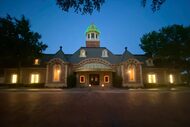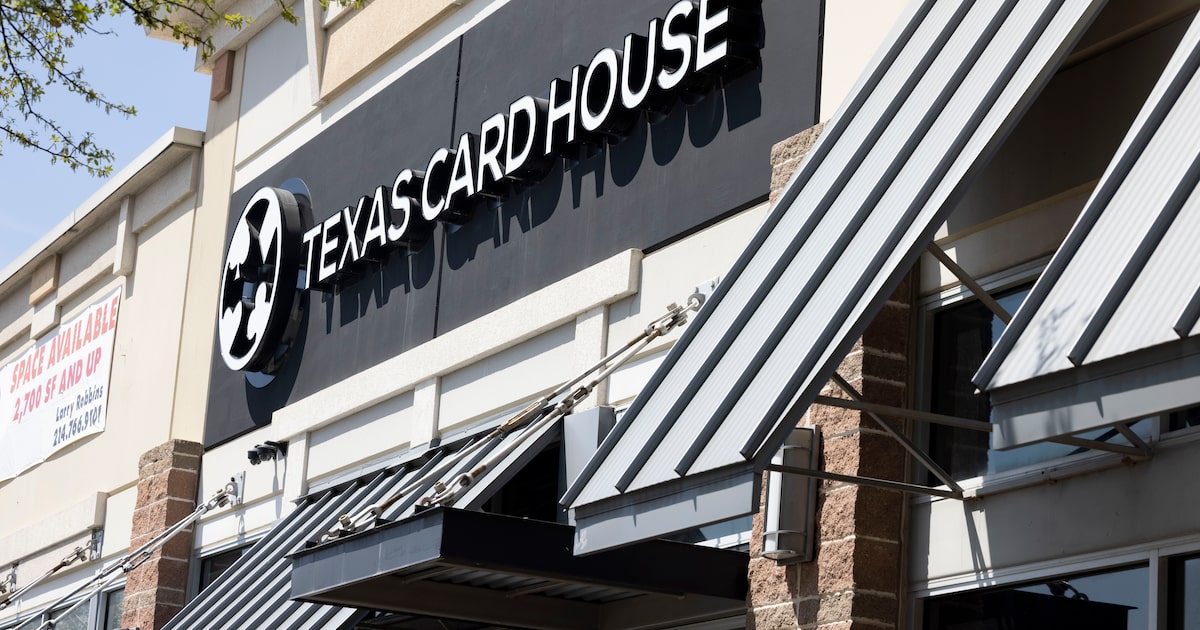The Texas Supreme Court says it won’t review a 2024 appeals court decision that blocks Dallas from revoking the operating credentials of poker club Texas Card House.
The decision could end a legal battle in which the city essentially sued itself to undo its approval of poker businesses in Dallas, which city officials now argue violates Texas’ ban on gambling.
The state Supreme Court on Friday rejected a request from former chief building official Andrew Espinoza to review the case, which stems from a March 2022 decision by the city’s board of adjustment. The board, made up of City Council volunteer appointees who hear challenges to city development code decisions, ruled that Texas Card House should keep its certificate of occupancy.
Espinoza, who left his role as Dallas’ head of city building inspections and permitting in 2024, sued both the business and the board to overturn the decision. In November 2022, a Dallas County district judge ruled in the city’s favor, calling the board’s decision illegal. Texas Card House appealed, arguing that city officials gave in to lobbying pressure and reversed their stance on the poker club without any change in state law or the business’ operations.
Political Points
Related

The Appeals Court later ruled the district judge shoud have deferred to the board of adjustment’s original decision.
Attorneys for Texas Card House and Espinoza did not immediately respond Monday to requests for comment on the state Supreme Court’s decision or potential next steps. The Texas Supreme Court is the state’s highest civil appellate court.
Dallas taxpayers footed the bill for legal fees from two lawsuits aimed at closing down poker clubs the city had previously approved. The City Council has authorized at least $550,000 to cover legal representation for Espinoza and the board of adjustment, which also overturned the city’s 2022 decision to revoke Shuffle 214’s certificate of occupancy. Both Texas Card House and Shuffle 214 have their own legal teams.
While Texas law bans gambling, it makes an exception for private games where no one profits except through personal winnings, and all players have an equal chance — aside from skill or luck. That gray area allows poker businesses to operate in cities around Texas, like Austin and Houston.
Dallas officials initially allowed at least three poker clubs to operate starting in 2020. But after public pushback when a poker club tried to open in Far North Dallas, the city reversed course in 2021 and now considers them illegal.
Texas Card House and Shuffle 214 challenged the revocation of their certificate of occupancy before the board of adjustment. A third club, Poker House Dallas, closed in June 2023 after a judge granted the city’s request to shut it down for lacking a valid permit. Though the Far North Dallas business, Champions Social Club, has opened, that group’s owners are appealing to the city’s board of adjustment to allow them to host poker.
In the case review request to the state Supreme Court, Espinoza’s attorneys argued that neither the city nor the board can authorize illegal activity, and that the appeals court mistakenly allowed the Board of Adjustment to misinterpret Texas’ gambling laws.
But Texas Card House’s attorneys argued the Supreme Court shouldn’t intervene because the city initially approved the business, the revocation was politically motivated and the board found no legal violations to justify revoking their certificate of occupancy.
